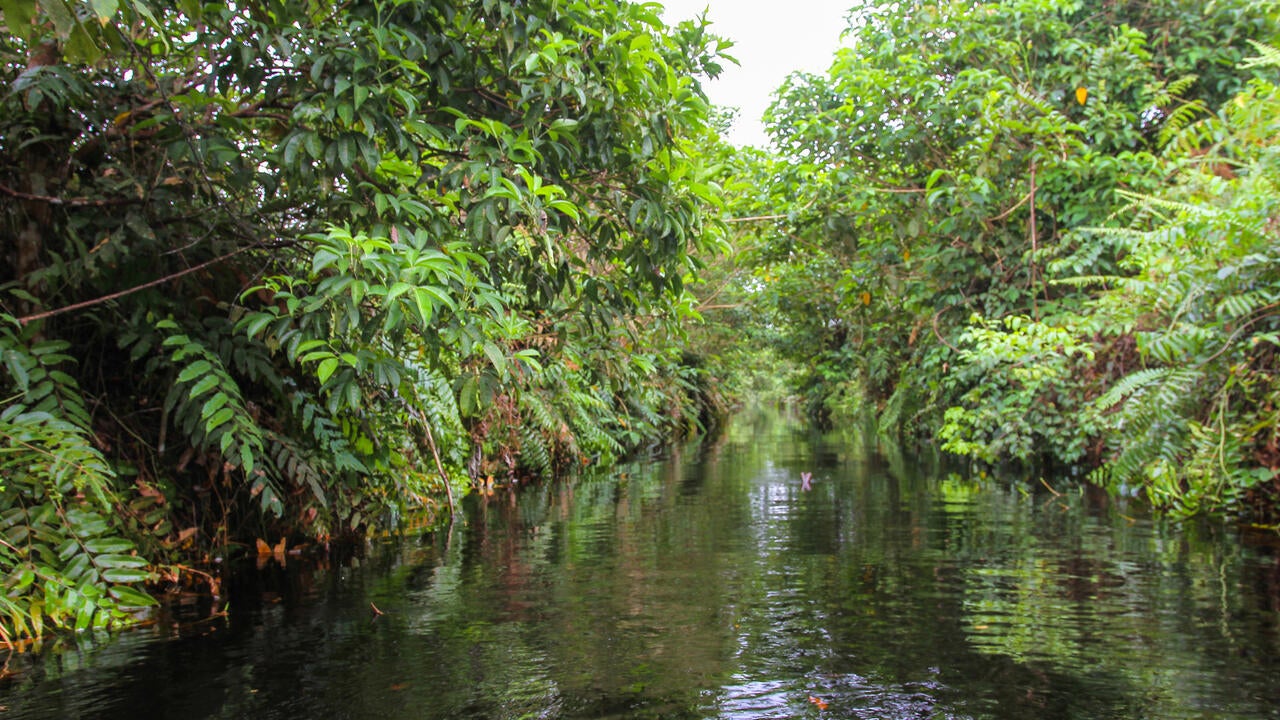
Waterloo Professor leads UN report on peatland preservation for North America
New report provides comprehensive assessment of the world's peatlands and identifies actions governments should take

New report provides comprehensive assessment of the world's peatlands and identifies actions governments should take
By Media RelationsA new report coauthored by University of Waterloo professor Maria Strack has provided the most comprehensive assessment of the world's peatlands to date and identified actions governments should take to improve their protection, restoration and sustainable management.
The report, Global Peatlands Assessment – The State of the World's Peatlands, was released by the United Nations Environment Programme's Global Peatlands Initiative at last week's United Nations Climate Change Conference. The report comprises contributions from hundreds of experts around the world, including Canada Research Chair in Ecosystems and Climate, Strack, who is a coordinating lead author of the report's regional assessment for North America.
Based on the report, if implemented with urgency, peatlands' protection, restoration, and sustainable management offer a huge win for people, climate and nature. Conservation and restoration of tropical peatlands alone can reduce global greenhouse gas emissions by 800 Mt CO2e per year, close to two percent of current annual global emissions, at an estimated investment of US$40 billion.
"This is less than 0.05 percent of global GDP in 2021," said Roy Brouwer, executive director of the Water Institute. "Moreover, such action would simultaneously support biodiversity, improve water quality, reduce flood risk, reduce air pollution from peatland fires and enhance the protection of important cultural heritage. The societal and economic benefits are enormous."
According to the assessment, healthy peatlands are being lost and degraded at a rate that is ten times faster than their rate of formation over the last 10,000 years. Worldwide, around 12 percent of current peatlands are degraded to the extent that peat is no longer formed, and the accumulated peat carbon stock is being lost.
The report notes that while 88 percent of the world's peatlands have not been drained and heavily degraded, they need to be urgently protected to prevent their immense carbon stocks from contributing to greenhouse gas emissions.
"We're incredibly fortunate in North America that 98 percent of our peatlands remain intact," Strack said. "Protecting this vast carbon stock is critical in climate action. However, in collaboration with Indigenous communities and governments, further policy development and implementation is needed to advance peatland conservation and wise use and ensure that the benefits arising from peatland services are shared equitably."
A few of the report's key recommendations include:
• Expand protected areas to include peatlands using evidence on the location and conservation status of peatlands provided in the assessment.
• Place buffer zones around peatlands so that encroaching threats can be averted in collaboration with local communities before they result in damage.
• Strengthen regulations to prevent or halt harmful operations like peatland drainage for agriculture and forestry and inadvertent loss of peatlands for other uses like minerals, oil and peat extraction.
• Create subsidies and fiscal mechanisms to incentivize practices that support the protection, restoration and sustainable management of peatlands.
• Establish robust monitoring frameworks to ensure action for peatland conservation, restoration and sustainable management is tracked. It must then be reported on in line with national and international reporting obligations and used to inform future peatland management.
The Global Peatlands Assessment aims to inform and inspire action in policy, research and practice that can help protect, restore and sustainably manage peatlands now and long into the future.
The University of Waterloo, through the Water Institute, is an official member of the UNEP GPI. Access the full Global Peatlands Assessment – The State of the World's Peatlands report, formally launched on November 17.

(GettyImages/ Rosella De Berti)
Read more
Study reveals changes International Olympic and Paralympic Committees could implement to keep Games viable and safer for athletes

Read more
An ambitious research collaboration with Habitat for Humanity is reimagining home ownership across Waterloo Region and Canada

Read more
Here are the people and events behind some of this year’s most compelling Waterloo stories
The University of Waterloo acknowledges that much of our work takes place on the traditional territory of the Neutral, Anishinaabeg, and Haudenosaunee peoples. Our main campus is situated on the Haldimand Tract, the land granted to the Six Nations that includes six miles on each side of the Grand River. Our active work toward reconciliation takes place across our campuses through research, learning, teaching, and community building, and is co-ordinated within the Office of Indigenous Relations.